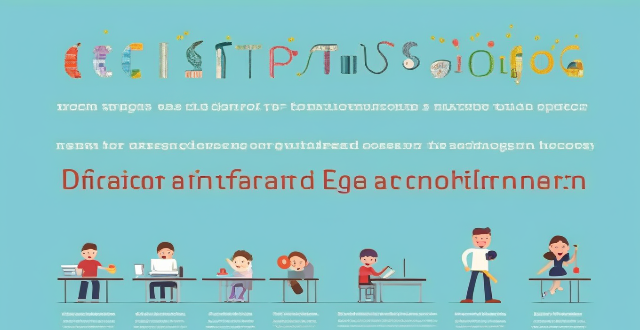The text discusses the significant role that educational psychology plays in special education. It highlights various areas where insights from educational psychology contribute to understanding and supporting students with disabilities or special needs, including identification and assessment, instructional planning, behavior management, learning supports, transition planning, and family involvement. The summary underscores that by applying principles of educational psychology, educators can design more effective strategies, foster inclusive environments, and promote the overall well-being and academic success of all students.

The Role of Educational Psychology in Special Education
Educational psychology plays a crucial role in special education by providing insights into the learning processes, behaviors, and developmental needs of students with disabilities or special needs. It helps educators understand how these students think, learn, and interact with their environment, which is essential for creating effective teaching strategies and interventions.
Key Areas Where Educational Psychology Contributes to Special Education:
1. Identification and Assessment
- Initial Screening: Identifying potential learning difficulties or disabilities early on.
- Comprehensive Assessment: Detailed evaluations to determine specific needs and strengths.
- Diagnosis: Providing accurate diagnoses that guide educational planning.
2. Instructional Planning
- Individualized Education Programs (IEPs): Tailored plans based on each student's unique needs.
- Adaptive Teaching Methods: Strategies that accommodate different learning styles and abilities.
- Inclusive Classroom Practices: Integrating students with special needs into mainstream classrooms effectively.
3. Behavior Management
- Positive Behavioral Interventions: Encouraging appropriate behavior through positive reinforcement.
- Crisis Intervention: Managing challenging behaviors in a supportive and constructive manner.
- Social Skills Development: Helping students develop interpersonal skills necessary for success.
4. Learning Supports
- Assistive Technology: Tools that aid in the learning process for students with various impairments.
- Specialized Curriculum: Content tailored to meet the unique learning requirements of special needs students.
- Collaboration with Professionals: Working alongside therapists, counselors, and other specialists for holistic support.
5. Transition Planning
- Life Skills Training: Preparing students for independent living after school.
- Career Counseling: Guiding students towards suitable vocations and higher education opportunities.
- Adult Service Coordination: Linking students with resources as they transition into adulthood.
6. Family Involvement
- Parent Training and Support: Empowering parents to support their child's educational journey.
- Communication Channels: Keeping parents informed about progress and challenges.
- Partnership in Education: Collaborating with families to create an inclusive and supportive learning environment.
Conclusion
Educational psychology provides the foundational understanding necessary for educators to meet the diverse needs of students in special education. By applying principles of educational psychology, teachers can design more effective instructional strategies, foster inclusive environments, and promote the overall well-being and academic success of all students.